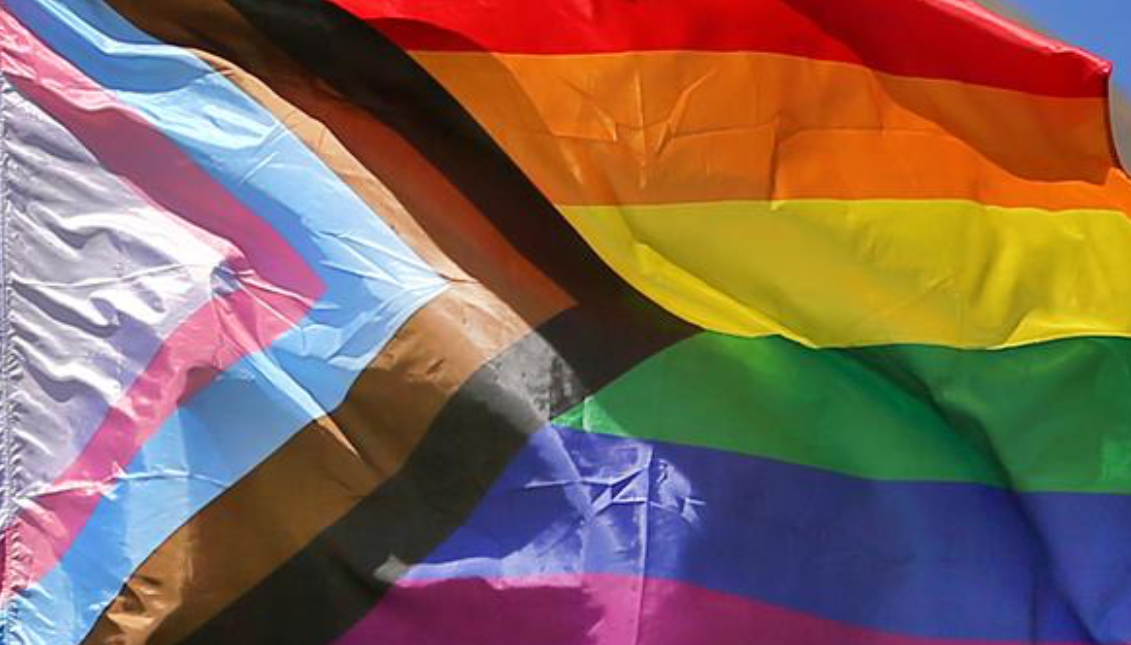
In passing the Equality Act, the U.S. could send a message to the world about LBGTQ+ rights
The bill provides federal protections from discrimination for LGBTQ+ individuals, in housing, the workplace and more.
During his campaign, President Joe Biden promised that in his first 100 days, he would prioritize the passing of legislation that would provide federal protection to the LGBTQ community.
On Thursday, Feb. 18, a group of congressional Democrats introduced the Equality Act, which would update current civil rights laws to include the first federal protections against discrimination for the LGBTQ community.
The House already passed the Equality Act last session, in May of 2019, with a bipartisan vote of 236-173, but it was blocked from further consideration by former Senate Majority Leader Mitch McConnell.
The House is scheduled to bring the bill back to the floor this week.
If passed, the Equality Act would update the Fair Housing Act, Civil Rights Act of 1964, Equal Credit Opportunity Act, Jury Selection and Services Act and laws around federal government employment. Currently, there are no federal anti-discrimination protections for LGBTQ individuals in the workplace.
Proud to support the #EqualityAct & to fight for a future where every #LGBTQ person is equal under the law. In most states, a person can be denied housing, education & more because of sexual orientation or gender identity. We must pass the #EqualityAct & end this discrimination. pic.twitter.com/gXudsGAOsH
— Rep. Ritchie Torres (@RepRitchie) February 18, 2021
According to Rhode Island Congressman David Cicilline, who has reintroduced the bill every session since 2015, it is currently legal for a member of the LGBTQ community to be denied housing, access to education and the right to serve on a jury in more than 20 states.
“In 2021, every American should be treated with respect and dignity,” Cicilline said in a statement. “Yet, in most states, LGBTQ people can be discriminated against because of who they are, or who they love. It is past time for that to change.”
In most states, a person can be denied housing, education, or the chance to serve on a jury because of their sexual orientation or gender identity. It’s dead wrong.
— Congressman Chuy García (@RepChuyGarcia) February 18, 2021
We need to pass the #EqualityAct and end this discrimination now. pic.twitter.com/oFDf3z72HI
According to a 2018 Public Religion Research Institute (PRR) poll, the protections laid out in the Equality Act are already fairly popular among Americans.
The poll showed that seven in 10 Americans support laws protecting against discrimination in employment, housing and public accommodations based on sexual orientation and gender identity.
RELATED CONTENT
In the official White House statement regarding the Equality Act, Biden praised Congressman Cicilline and the entire Congressional Equality caucus for reintroducing the Act and urged Congress to swiftly pass it into law.
He then expressed how proud he was to sign an executive order on his first day in office that directed federal agencies to implement the 2020 Supreme Court decision, Bostock v. Clayton County, which granted LGBTQ individuals protection from employment discrimination under Title VII of the 1964 Civil Rights Act.
Congressman Cicilline acknowledged that Biden’s executive order was a crucial first step in addressing the widespread problems of discrimination, he said the Equality Act is stil needed and will go a few steps further to ensure protection.
As the proud mom of a transgender child, I know how much work remains to ensure all LGBTQ+ people can live their lives free from discrimination.
— Rep. Pramila Jayapal (@RepJayapal) February 18, 2021
I’m proud to help introduce the #EqualityAct. Let's pass it, make it law, and guarantee full civil rights to everyone in America. pic.twitter.com/baJt7odyQI
The Equality Act has over 200 co-sponsors, including New Jersey Rep. Andy Kim, New Mexico Rep. Deb Haaland, and Texas Rep. Veronica Escobar.
Congressman Kim announced on Monday Feb. 22 that he has signed the bill as an original co-sponsor, and also signed it during the 116th Congress.
“This bill isn’t just about recognizing equality for LGBTQ Americans; it’s about ensuring that their lives and livelihoods are protected with the same strict standard as every other American,” Kim said.
“Employment, housing, and education are basic needs, yet members of the LGBTQ+ community can be denied access to these and denied other civil rights in many states. The Equality Act will change that and I’m proud to be in the fight for equality,” said Rep. Deb Haaland.
Passing the Equality Act would not only prevent LGBTQ Americans from being denied essential services based on prejudice, but it would also send a message to the rest of the world, where it is simply being openly gay or trans is criminalized in 70 countries.










LEAVE A COMMENT: